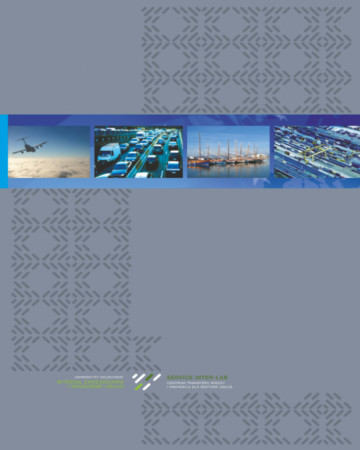
ISSN: 1644-275X
eISSN: 2353-3005
OAI
DOI: 10.18276/ptl.2015.29-31


Issue archive /
ZN nr 869 PTiL nr 29
Weryfikacja zależności przyczynowo-skutkowych pomiędzy energochłonnością transportu samochodowego a transportochłonnością i poziomem podatków paliwowych w Polsce
(The verification of causal linkages among road transport energy intensity, transport intensity and level of fuel taxes in Poland)
| Authors: |
Elżbieta
Szaruga
Katedra Metod Ilościowych Wydziału Zarządzania i Ekonomiki Usług, Uniwersytet Szczeciński. |
| Keywords: | VECM Johansen trace test fuel taxes transport intensity road transport energy intensity |
| Data publikacji całości: | 2015 |
| Page range: | 13 (429-441) |
Abstract
The issue of causal linkages among road transport energy intensity, transport intensity and level of tax fuels in the article was presented. The article consists of two parts. The first part presents the literature review, where models of other researchers who focused on VAR and VECM approaches were examined. The second part presents an empirical analysis, where VECM model was used. The fundamental linkages among these categories and coexistence trends of these variables were identified. It also the ADF test and the Johansen trace test were used to investigate the order of stationarity and cointegration. As a result of the research, the bidirectional linkage among road transport energy intensity and road intensity, and two unidirectional linkages among level of fuel taxes and energy intensity or transport intensity were found.
Bibliography
| 1. | Abdallah K.B., Belloumi M., De Wolf D., Indicators for sustainable energy development: A multivariate cointegration and causality analysis from Tunisian road transport sector, „Renewable and Sustainable Energy Reviews” 2013, vol. 25. |
| 2. | Beyzatlar M.A., Karacal M., Yetkiner H., Granger-causality between transportation and GDP: A panel data approach, „Transportation Research Part A” 2014, vol. 63. |
| 3. | Chandran V.G.R., Tang C.F., The impacts of transport energy consumption, foreign direct investment and income on CO2 emissions in ASEAN-5 economies, „Renewable and Sustainable Energy Reviews” 2013, vol. 24. |
| 4. | Eurostat http://ec.europa.eu/eurostat/data/database. |
| 5. | Kulshreshtha M., Nag B., Kulshreshtha M., A multivariate cointegrating vector auto regressive model of freight transport demand: evidence from Indian railways, „Transportation Research Part A” 2001, vol. 35. |
| 6. | Liddle B., Lung S., The long-run causal relationship between transport energy consumption and GDP: Evidence from heterogeneous panel methods robust to crosssectional dependence, „Economics Letters” 2013, vol. 121. |
| 7. | Liddle B., The systemic, long-run relations among gasoline demand, gasoline price, income, and vehicle ownership in OECD countries: Evidence from panel cointegration and causality modeling, „Transportation Research Part D” 2012, vol. 17. |
| 8. | Lin B., Xie C., Estimation on oil demand and oil saving potential of China’s road transport sector, „Energy Policy” 2013, vol. 61. |
| 9. | OECD Stats, https://stats.oecd.org. |
| 10. | Wijeweera A., To H., Charles M., An empirical analysis of Australian freight rail demand, „Economic Analysis and Policy” 2014, vol. 44. |